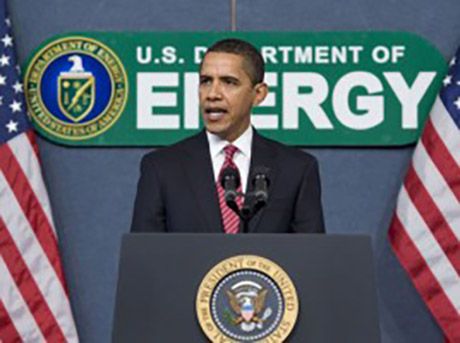Features
You are here
Keystone XL rejection: a victory for climate justice?

November 19, 2015
Enormous praise should go out to the climate movement for putting pressure on the Obama administration to reject the Keystone XL project. Hopefully this injects new confidence and growth in the movement going forward. But the victory is not without its contradictions.
According to climate scientist James Hansen, it will be “game over for the climate” if Canada continues tar sands production. These ecocidal pipelines, which disproportionately affect Indigenous communities, include the Northern Gateway and Kinder Morgan pipelines heading west, the Energy East and Line 9 pipelines heading east, and the Keystone XL pipeline heading south.
In the US the climate justice movement has been rising in recent years, with a focus on stopping the Keystone XL pipeline. In 2013 in what was then the biggest climate justice protest in US history, up to 50,000 surrounded the White House to oppose the Keystone XL pipeline. These numbers increased nearly 10-fold in a year, as 400,000 people joined the People’s Climate March in New York City last year. Earlier this month Obama rejected the Keystone XL pipeline, in what constitutes a major victory for the climate justice movement. But like many reforms under capitalism, it also expresses a shift in ruling class strategy.
Oil economy and US strategy
There has been an an enormous expansion of fossil fuel production in the US during the Obama tenure. The Obama regime made a conscious policy decision post financial crisis (through government subsidies, R&D, and tax breaks) to vastly increase domestic production of oil and natural gas from horizontal drilling and fracking, while making US oil and gas cost competitive in global markets. A development that has been dubbed “the fracking revolution.”
The result has been an increase in US domestic production of 3.6 million barrels per day, and 27 billion cubic feet per day of natural gas, since 2006. Obama has been quite proud and vocal of this accomplishment, bragging that a record amount of pipeline has been put down during his presidency to move all this hydrocarbon (for example 1200 miles worth of new oil pipeline, ten times the length of the proposed Keystone line).
This massive increase in US production—along with global production during the energy boom- and decreasing demand during the ongoing economic crisis—has effectively halted the oil boom, driving global crude prices from a peak of $140 (2009) to the current $45. That has created an estimated 3 billion barrel surplus of crude in global markets today.
What was the point of this frenzy in fossil fuel production? Clearly, not Obama’s concern for climate justice—and in rejecting Keystone XL, Obama said it “will not serve the national interests of the United States.” Instead, hydro-carbon expansion performed three functions for the Obama administration and the US ruling class. First it improved the US’s geopolitical position, by making America less “dependent” on foreign oil. The second was that by getting in on a resource investment boom prompted initially by record high oil prices in the early 2000’s, this helped buoy the US economy after the sub prime real estate bubble popped 2008.
The third is that, ironically, it has allowed Obama to proclaim himself a champion in mitigating climate changem, despite the fact that he is expanding the production of the very thing causing climate change. Because horizontal drilling of shale oil and “fracking” of natural gas are supposedly “cleaner” and more cost effective than coal, Obama has been able to meet his modest (yet woefully ineffectual) environmental initiative: his Clean Power Plan and the “historic” climate deal struck with China last November. And now, with the rejection of Keystone that was to channel dirty Canadian bitumen, he has been able to add one more feather in his “I am a progressive liberal” cap.
Real change comes from below
None of this takes away from the role and importance of the climate justice movement. Like all reforms, this victory should increase our confidence about what movements have accomplished, while exposing capitalist contradictions and the next steps going forward—including challenging both fracking and tar sands.
For the climate justice movement in Canada the rejection of the Keystone XL pipeline couldn’t have come at a better time: during the “climate welcome” protest outside of the residence of new Prime Minister Justin Trudeau. The climate justice movement mobilized against Harper, exposed the lack of climate alternatives from all mainstream parties, and vowed to pressure whoever was elected. For four days at the start of the month climate activists delivered solar panels and demanded a halt to tar sands expansion.
While Trudeau refused to meet with the climate activists, he voiced his “disappointment” that Obama had rejected Keystone, while agreeing to a massive sewage dump in Montreal and heading into the Paris climate talks with Harper’s climate plan. Clearly “real change” won’t come from Obama or Trudeau, but it is coming from the growing climate justice movement.
Join the 100% possible climate justice mobilization November 29 in Ottawa.
Section:










